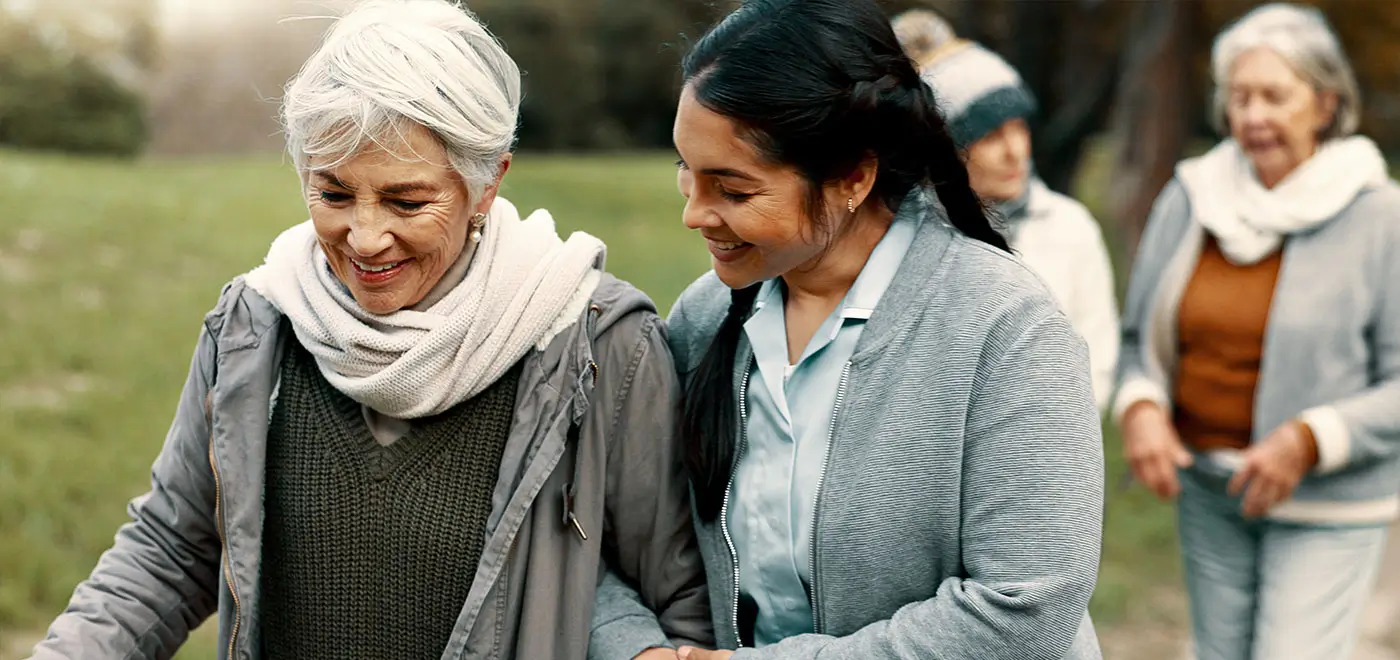A Comprehensive Guide to Respite Care for Caregivers
A Comprehensive Guide to Respite Care for Caregivers

Respite is about You. (Having someone stay with your loved one while you do the grocery shopping is not respite. It’s help.)
What Are Your Options for Respite Care?
After deciding that you need respite, you might wonder: what are the options? The landscape of respite care services has been evolving, with more recognition and support for caregivers. There is now more understanding of the importance of this assistance at both the state and national levels. The National Family Caregivers Support Program, for example, offers funding for respite advice and services, and many community programs provide more flexible services than ever before. Here are some of the respite care options available:
Respite Services in Your Own Home
For most caregivers, the preferred option is someone coming into the home to give them time off. Family members might meet this need, or you can reach out to volunteer groups or home health care agencies. The choice depends on the skill level required and your ability to pay for the service.
Volunteer Caregivers: Volunteers are becoming an increasingly common resource. Organizations like the National Volunteer Caregiving Network (formerly Interfaith Caregivers Alliance) connect volunteers with caregivers in need. These volunteers offer non-medical help such as meal preparation, transportation, and light housekeeping. They provide not only practical assistance but also emotional support, offering caregivers companionship and a break from their daily tasks.
Home Health Care Agencies: If you need more specialized care, consider working with a home health care agency. For example, Visiting Nurse Associations of America (VNAA) provide non-profit, Medicare-certified care, although respite care is not covered by health insurance and will likely require out-of-pocket payment.
Respite in Day Centers
If home care isn’t the solution, you may want to explore day services available in your area. Programs such as those offered by Easter Seals provide both social and medical support in a structured, community setting. These programs often serve individuals with special needs, offering a safe environment where they can participate in activities while their caregivers take a break. Day centers can be an excellent option to meet both social and medical needs, while also helping caregivers maintain their own health and well-being.
Respite Care Overnights and Residential Options
For longer periods of respite, caregivers may turn to overnight stays or residential respite care, where the person being cared for stays in a facility such as a nursing home or group home. This can provide caregivers with the time they need to travel, address their own health needs, or simply enjoy a longer period of rest.
Expanding Respite Care Services
Though options are growing, the demand for respite services continues to outpace supply. The National Respite Coalition (NRC) is working to expand respite options through Lifespan Respite programs, which help caregivers find short-term relief. States like Oregon, Nebraska, and Wisconsin are leading the way, and others are following their example. These programs aim to centralize resources and funding, making it easier for caregivers to find the support they need.
In a state with a Lifespan Respite program, one phone call to a social worker, area aging council, family social service agency or similar organization will enable the caller to find all local respite options, along with information on how respite might be funded. The information covers all types of service, all means of financing, for all ages and conditions of care, and places the power of choice in the hands of the caregiver. NRC sees a future in which caregivers can find what they need without dozens of phone calls and dead-end efforts. But until Lifespan Respite becomes a reality, persistence is necessary
Overcoming Obstacles to Respite Care
Many caregivers face emotional and psychological barriers that prevent them from seeking respite. Deep fears about the adequacy of care for their loved one, concerns about trust, and guilt are all common challenges. It’s essential for caregivers to acknowledge these fears and seek reliable respite care early. This can ensure they receive the support they need without feeling overwhelmed or isolated.
The Importance of Respite: A Key to Successful Caregiving
Remember that respite care keeps you going – it is a necessity, not a luxury. Respite care is necessary for maintaining the health and well-being of caregivers. By embracing the support available, caregivers can rejuvenate themselves, reduce stress, and continue providing compassionate care. Taking time for respite helps caregivers stay healthy, balanced, and emotionally available for their loved ones. With more respite care options than ever, finding the right support is within reach.



